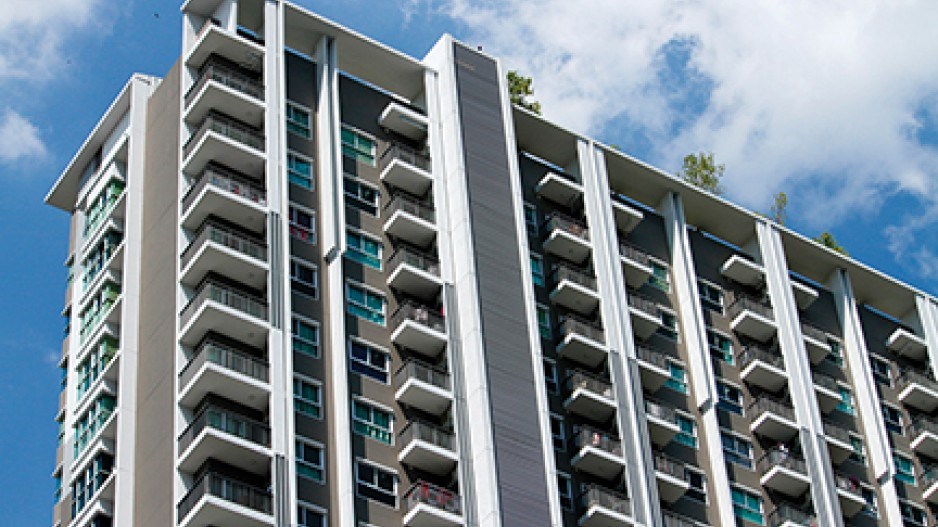Even in the central Okanagan, with a strong housing market and a long history of support for the BC Liberals, the government’s plan to help first-time buyers has not caught fire with all in the real estate community.
“It is a silly program,” said Phil Soper, Kelowna-based president of Royal LePage Canada. “It was brought in at exactly the wrong time. It stokes housing demand when there is a supply shortage.”
In strong markets like Metro Vancouver and Kelowna, he said, “it is throwing gasoline on the fire of the housing market.”
Soper, who admits he is “more likely to vote for [Premier] Christy Clark” in the May 9 provincial election, also concedes that his agents are mostly delighted with a program that hands interest-free, five-year loans to mostly young people to help them buy the most expensive homes in the country.
Since the B.C. Home Owner Mortgage and Equity Partnership program was announced January 16, 998 applications have been received, 256 applications approved and 567 applications pre-approved, for a total value of approximately $4 million in provincial loans, according to the Ministry of Natural Gas Development and Minister Responsible for Housing.
Almost half of the applications have come from the Lower Mainland – including 150 in Vancouver – and half from other areas of the province, including 44 in Kelowna and 86 in Victoria. First-time buyers have signed up from virtually every region.
If the pace continues, the province will burn through the program’s $703 million budget a few months short of its three-year mandate. By that time, according to Premier Clark, 42,000 first-time buyers in B.C. will have had their down payment matched with a government-backed second mortgage.
The program contributes to the amount first-time homebuyers have already saved for their down payment, providing up to $37,500, or up to 5% of the purchase price on a $750,000 home, with a 25-year loan that is interest-free and payment-free for the first five years.
“It’s working; it is being used by people who really need it,” said veteran Kelowna real estate broker/owner Francis Braam, who estimated 20% of the first-time buyers through his Royal LePage office have applied for the provincial aid.
Braam said all of the applications have been from those putting down the minimum of 5%, which means 2.5% of the money comes from the government’s five-year second mortgage loan. Most, Braam said, are young people buying Kelowna-area condominiums with prices from $228,000. At this price, a buyer approved in the program would need to come up with only $5,700 of his or her own cash.
“We don’t particularly like it when a person buys with no money down,” said Braam, who has been selling homes for 29 years, “because that often comes back to bite [them] later on if the market changes.”
Agents contacted from Prince George to Nanaimo to East Vancouver also said most first-time buyers using the incentive were putting up the minimum down payment. In Vancouver, such a first-time buyer would need about $15,400 to secure an average-priced $617,000 condo apartment.
For some, it appears a good investment: the price of a Vancouver resale condominium has increased by an average of $70,000 since the tax was introduced in mid-January, according to the Real Estate Board of Greater Vancouver.
The swift and widely based popularity of the first-time buyer program means it could survive, regardless of who wins the provincial election.
David Eby, the BC NDP housing critic, questioned whether “for people burdened with the highest housing debt in Canada, working at the lowest wages in Canada for those with post-secondary degrees, to give them a second mortgage to take on even more debt is actually helping.”
Eby was guarded, however, on what the NDP would do differently.
“Our challenge with the program is that a whole lot of people have applied for it,” he said.
“We would have to figure out what it is doing and if it is really helping people and work from there.”




